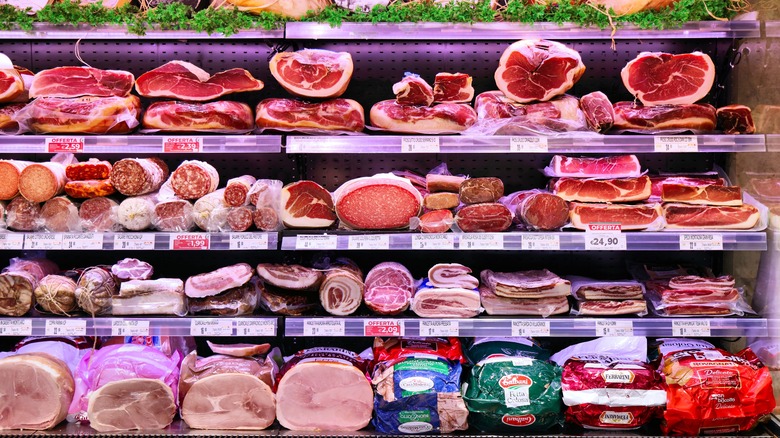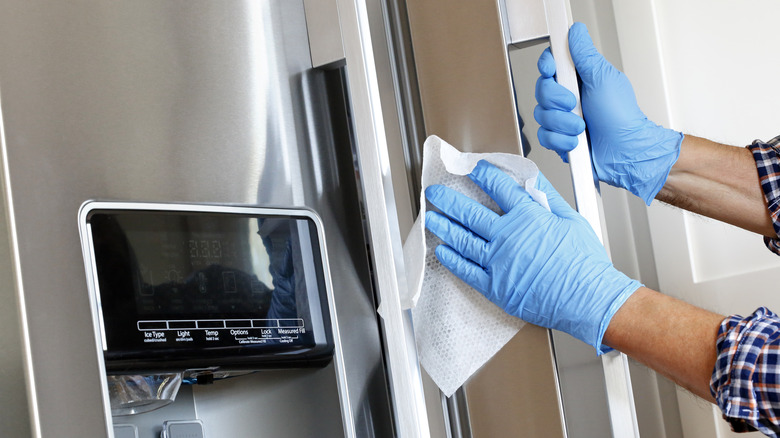The 3 Deli Meats To Avoid Amidst The Recent Listeria Outbreak
According to the Center for Disease Control (CDC), as of July 19, 2024, at least 28 people have become ill as a result of exposure to Listeria monocytogenes since late May, resulting in the hospitalization of all reported individuals and two deaths. The outbreak has affected nearly a quarter of the states in the U.S., with sickness reported in Georgia, Illinois, Maryland, Massachusetts, Minnesota, Missouri, New Jersey, New York, North Carolina, Pennsylvania, Virginia, and Wisconsin.
The majority of those affected by the outbreak reported eating deli meats — particularly ham, turkey, and liverwurst. All of the meats were sliced in stores (as opposed to being prepackaged). However, the CDC is being cautious about pointing to one or more specific meats as the source of the outbreak without further research. It's important to note that while deli-sliced meat appears to be the source, the bacteria can also be spread on surfaces like counters and equipment in the deli, as well as via hands and other food.
What is listeriosis, and how do you prevent it?
According to Mayo Clinic, listeriosis is a type of food poisoning caused by bacteria found in foods like unpasteurized milk, deli meats, and even hot dogs that haven't been cooked to the proper temperature. Symptoms like nausea, diarrhea, muscle aches, fever, and chills may range in severity and sometimes take up to a month to develop. If left untreated, the bacteria can also cause bacterial meningitis, which may result in headaches, confusion, neck stiffness, and convulsions and can be fatal. If you suspect that you have contracted listeriosis, it's important to visit a doctor for treatment, particularly if you are part of an at-risk population, including immunocompromised individuals, people over the age of 65, and pregnant people.
To prevent the contraction of listeriosis, particularly in at-risk populations, the CDC recommends avoiding deli-sliced meats and cheeses (unless heated to 165 degrees Fahrenheit), hot dogs that have not been heated, dry sausages, meat spreads, and cold-smoked fish. Also, steer clear of potentially dangerous pre-cut produce like sliced melons that have not been refrigerated for over two hours, or that have been in the fridge in excess of a week. Avoiding soft cheeses and any dairy product made with unpasteurized milk is also suggested.
Additionally, keeping a clean kitchen is an important safety precaution. Avoiding cross-contamination on cutting boards and utensils and cleaning your refrigerator with soap and water will also help to prevent bacteria from contaminating your food.


